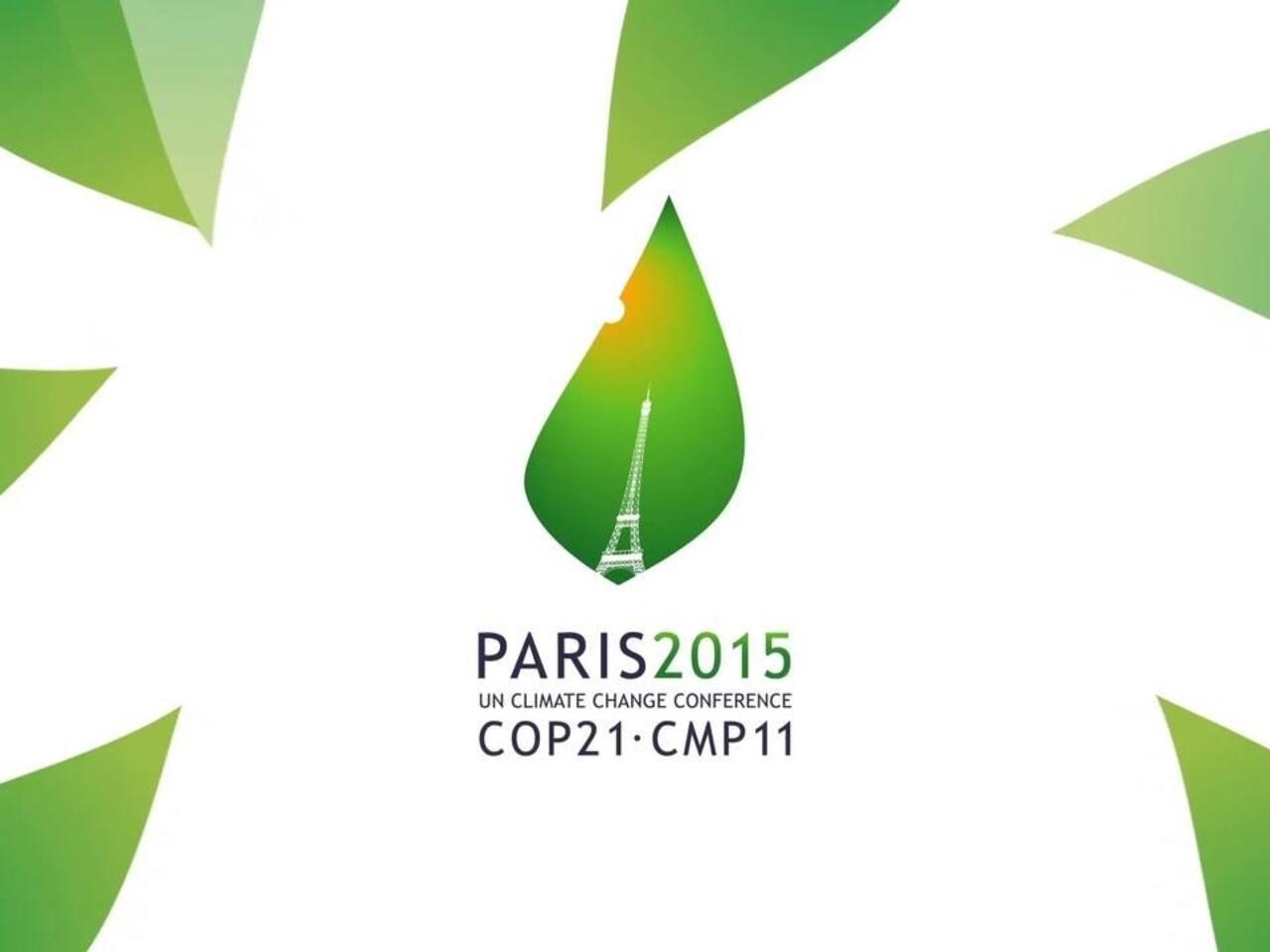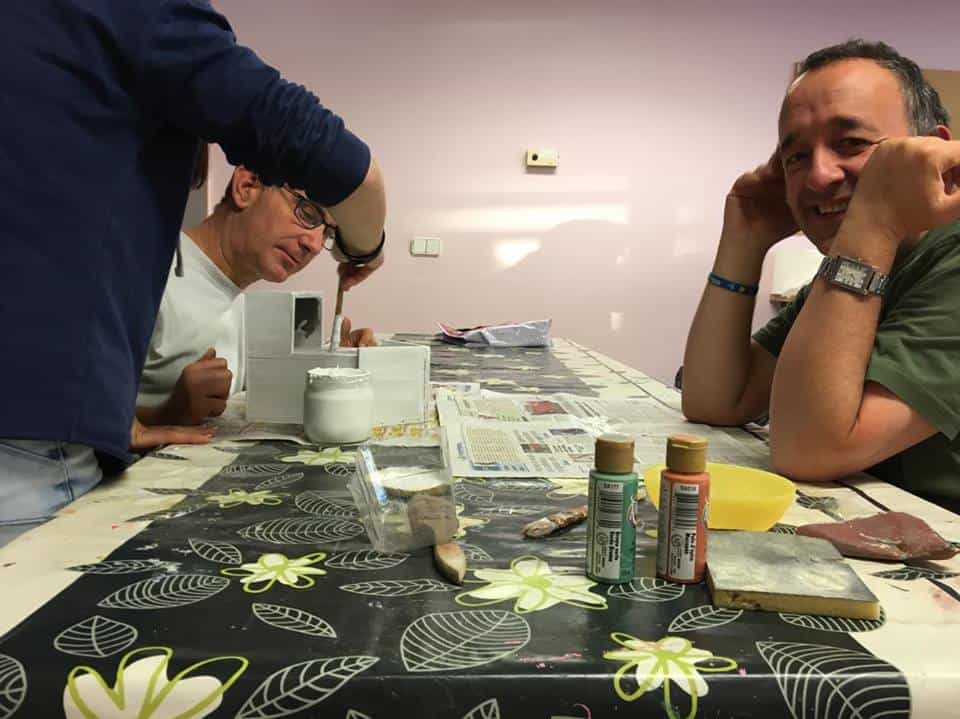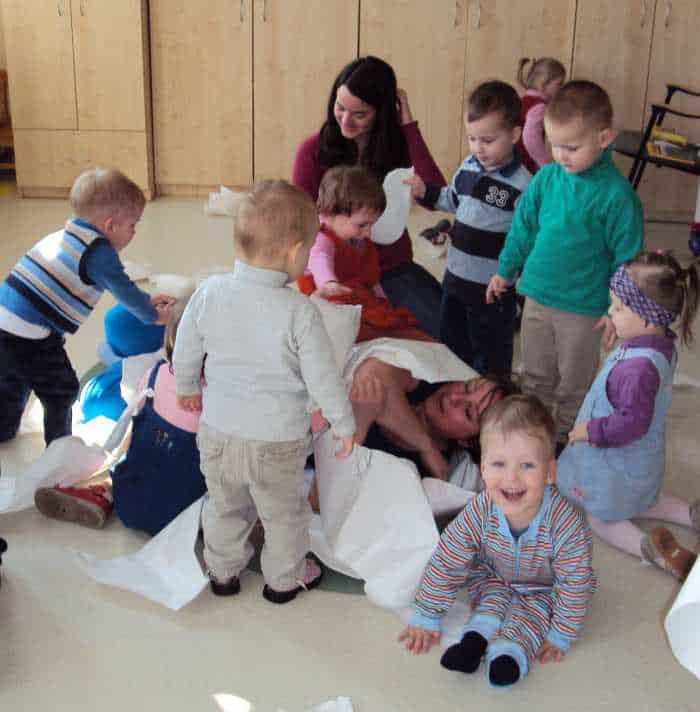"Another world is not only possible, she is on her way. On a quiet day, I can hear her breathing." (Arundhati Roy)
„Ich hatte die Möglichkeit, die letzten 4 Tage der COP21 beim zivilgesellschaftlichen Programm der CIDSE (Weltverband der katholischen Entwicklungsorganisationen) im Rahmen der Klimakonferenz in Paris teilzunehmen und möchte hier von meinen Eindrücken erzählen.
"COP21 is not the end. It will hopefully be an important step, but our movement will and must continue beyond that." That was a pithy sentence for me before the negotiations began.
Already on the first evening, reports on the activities of various CIDSE member organizations showed how the movement for climate justice has grown recently and that it is about much more than just climate protection for everyone. For us, it is about changing our (Western) lifestyles and transforming the current neoliberal economic and trade system. To this end, we are forging broad alliances ranging from church organizations to environmental organizations and NGOs critical of globalization, from small and large grassroots movements in the global South and North to large international associations.
During these 4 days there was a rich program of regular briefings on the status of the negotiations in Le Bourget, inspiring lectures, a tour of the alternatives, a marketplace of initiatives and other opportunities for informal exchange.
I would like to highlight the events with WoMin (African Women Unite Against Destructive Resource Extraction) and the Rural Women's Assambly - two associations of African women workers and smallholder farmers.
Many (feminist) organizations as well as various political decision-makers at COP21 criticized the underrepresentation of Black women, women of color, workers, farmers, migrants, etc. Their voices were not heard enough during the conference. Their voices were heard far too little during the conference. This can now also be seen in the final agreement, in which "gender equality" is only mentioned in the preamble and other topics that are particularly relevant for women, such as "food sovereignty" and "food security", are also no longer included in the core text. Despite the ignorance of large parts of the international community, the committed feminists from WoMin and the Rural Women's Association never tired of holding their workshops and lectures on alternative, community solar energy projects that oppose further coal mines and power plants in South Africa or spreading their message "Africa is not for Sale" at other events.The aim of civil society in Paris was: "Whatever comes out of COP21 - we will take to the streets and have the last word!" Whether this will actually be legally possible - apart from the Climate Peace Justice Action - was not clear until shortly before the demonstrations began due to the state of emergency in Paris and the restrictive measures taken by the authorities. However, a coalition of civil society and various organizations sent a clear signal in Paris by not being deterred in their preparations and mobilization for the rallies and demonstrations on 12 December. In the ZAC (Zone Action pur le Climat) - virtually the center of civil society cooperation during COP21 - the message on the eve was: "Another world is possible, and tomorrow we will make her roar!"
With this call, we started the next day. Climate activists met at various locations in Paris to get more information about which address and GPS point they should go to in order to write a message on the map of Paris together. We also set off to the address assigned to us. We log our position with our smartphones and share photos of our action with the hashtag #ClimateJusticePeace. A short time later, it becomes clear that it has worked: almost 3,000 people have lit up Climate Justice Peace on the map at 1,200 different points in the city.
After that, it was straight on to the next action. The Red Lines near the Arc de Triomphe are our destination. The closer we get to this destination, the denser the crowd of other people on the same route becomes. The Red Lines are intended to make it clear that there are red lines in civil society, such as the rapid phase-out of fossil fuels, which must not be crossed. "Don't cross the red lines!"
There were already a lot of people taking part in this action. More and more long red cloths were rolled out down the street and the red lines became thicker. There was a lot of creative protest and the diversity and strength of our movement became visible. From the Red Lines, a march formed towards the Eiffel Tower, where the final rally took place. Surrounded by people who were all committed to transformative change with all their strength, their hearts and their creativity, I could feel what we were shouting together. "We are unstoppable another world is possible!"
It is clear that this weak agreement is nowhere near enough to keep global warming below the all-important 2°C, let alone 1.5°C. Even if some good points have made it into the agreement, which we as civil society can make good use of for our future work, the planet will continue to burn with this agreement and more and more people will starve, drown or have to flee due to climate change - that is, due to our Western wasteful lifestyle and a neoliberal economic system, which is still more important to political decision-makers than (climate) justice.
But we no longer have time to be disappointed and crushed. We have to look at what we have, what we have gained through this agreement, but above all the great treasure we have as a community and as a movement. We have to become more radical, that means looking for problems and solutions at the root and continuing to work for a fairer society. Step by step. We must first and foremost implement the demands we have made of the negotiators, both personally and in our organization. That means 50% decarbonization by 2030, 95% decarbonization by 2050. We must put pressure on our own national governments and listen to our partners in the global South, learn from each other and continue to show solidarity with them.
35 years until 2050 doesn't sound like much, considering everything that has to be achieved by then. But when we look back and see what has happened in the last 35 years, real change for the better no longer seems impossible. Knowing that we are connected with creative, strong and committed people around the globe gives us strength.
„Wir sind die, auf die wir gewartet haben.“
Report by Hannah, first published on www.klimapilgern.at
Hannah was a volunteer participant with the KOO from 9-13.12.2015 at the CIDSE civil society program in Paris. She graduated in International Development in 2014 and works on sustainable alternatives and initiatives on a local and global; individual and political level, climate justice, and intersectional and solidarity feminism. Radical - going to the roots.

Testimonials
Europe



